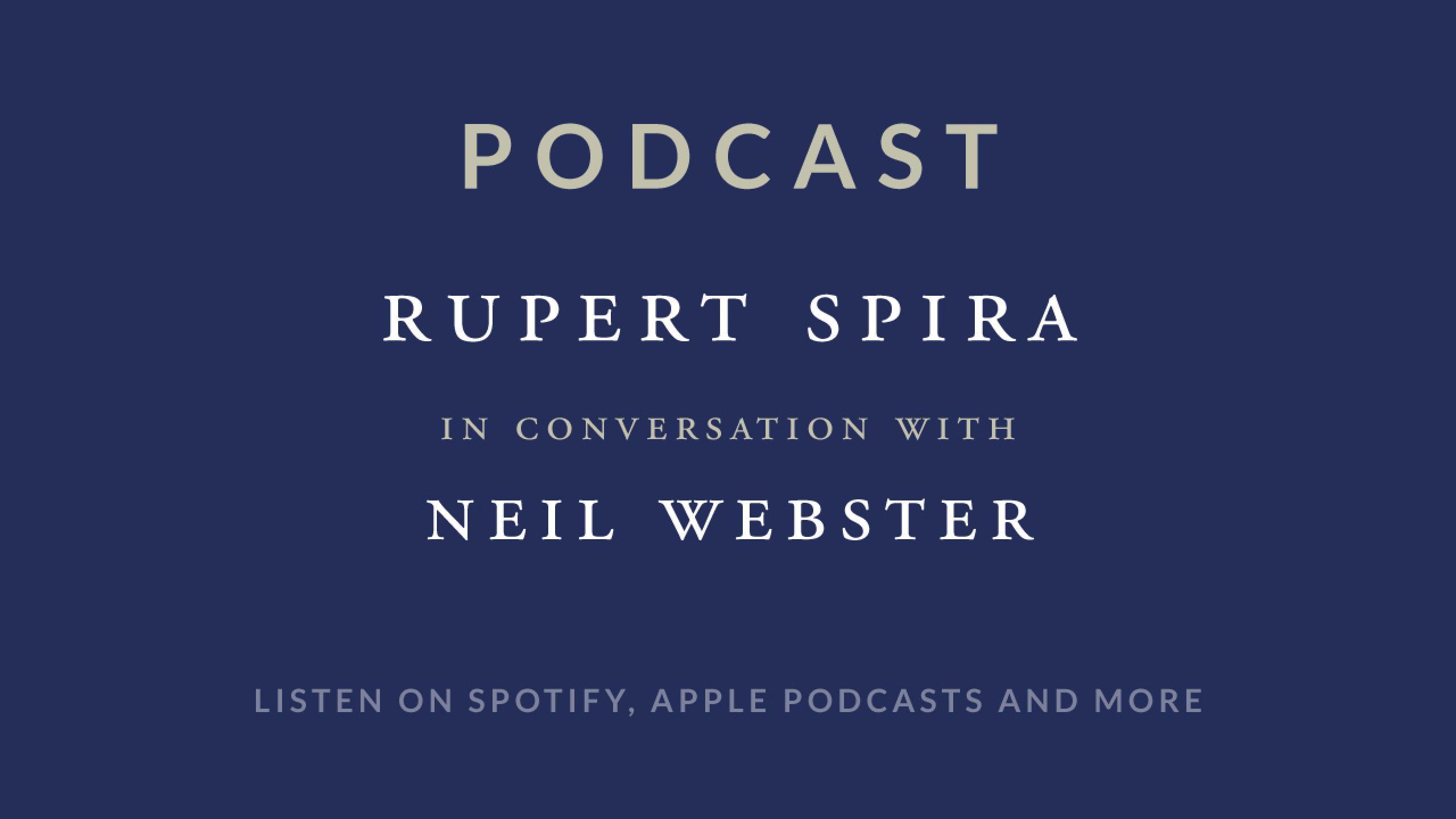Neil describes having had a ‘hammer moment’: he had been introduced to meditation and the Direct Path to non-dual understanding as expressed by Rupert, and he was hit by the sheer obvious simplicity of what he was hearing.
While he was hungry to read a lot of books on the matter, he also openly admits to scepticism and the feeling that this line of enquiry was not for ‘normal people’, that it had a perceived element of class and intellectualism that was alienating. So he approaches this conversation from a place that many people will recognise.
In response to Neil’s request for a concise definition of non-duality, Rupert suggests that if all the books of every spiritual tradition were put through an algorithm to distill the understanding, it would come out something like this: The nature of our being is happiness, and we share our being with everyone and everything.
Neil says that the idea ‘you can’t become happy by things’ is very easily graspable now, but what’s harder is discerning how you go directly to that happiness. So Rupert explains what it means to go directly to our self; how the highest form of meditation is simply to be; and how, in the Direct Path, this means the mind sinking back into itself, into the heart of awareness.
Regarding something often heard in non-duality circles, that ‘there’s nothing to seek and nowhere to go’, Rupert quotes Balyani: “What we are speaking of here cannot be found by seeking; and yet, only seekers find it”. There is subtlety in the recognition that for almost all people some sort of search is both necessary and inevitable in order to come to a complete understanding of both statements.
The conversation ends with a discussion about love. Rupert invites Neil to imagine how it would be if the very first thing we felt when encountering anyone, be it an intimate partner, family member, friend, neighbour, colleague, stranger – or even an enemy – was that at the deepest level their being and ours was one and the same.
Neil’s response is that it seems so obvious, but the practical rolling out feels huge and impossible. He asks if loving everyone in the same way means that we don’t therefore love our family more than anyone else?
‘Love is not a feeling we have towards a particular person’, says Rupert, ‘it’s simply the recognition that we share our being with that person. He further explains that ‘there isn’t one kind of love you have for your wife and another kind of love for your neighbor’. At the deepest level, they’re exactly the same thing, however the expression of that love varies.
Also, it’s the conditioning of our minds that dictates whether or not we like somebody. But ultimately, whether we like them doesn’t matter since we are called upon to love everyone equally. To do so, is an expression of the truth that ‘love is the recognition that our being is unlimited and shared.’
You can listen to this episode on the Rupert Spira podcast here.
